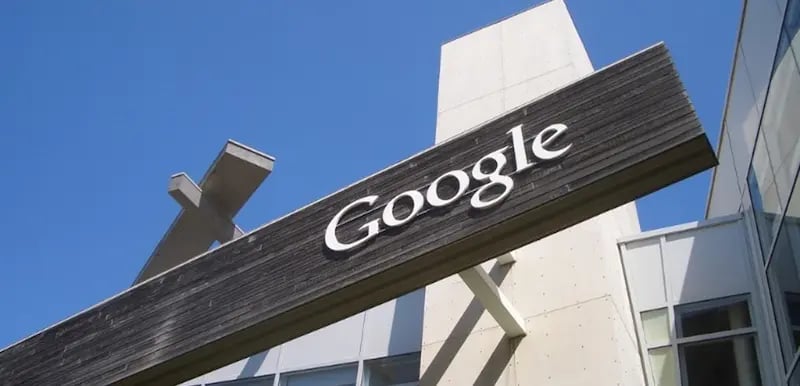Exus Blog Article
GOOGLE IS COMING!!!! But how would they (and other tech companies) handle debt collections?

By now, banks are used to fintech scare stories. It’s all challengers, startups, and open banking. The new guys, it’s said, are coming for the incumbent banks.
Truth is that for now at least, these challengers struggle to match the power of an established bank. The more likely result is a partnership, rather than competition. But there is an exception: The FAANGs (Facebook, Amazon, Apple, Netflix, and Google).
Facebook, Amazon, Apple, and Google have already embarked on well-documented forays into financial services. So what, we wonder, would their collections departments be like if they become fully-fledged banks?
Amazon
Amazon, back in the more innocent days of 1998, was basically a bookstore. That Amazon is a distant echo (pun intended) of the everything store it is now, complete with future plans for nightmarish structures housing its drone army, a newly buff Jeff Bezos and a trillion-dollar valuation.
It owns supermarkets, e-book publishers, review sites, publishers, game portals - so surely, it won’t be long until everything store includes financial services. And your instinct isn’t wrong: Amazon is in talks with banks about creating its own current account service. How, then, would this Amazon Bank collect debts?
Ping! The email or text alert arrives: ‘Dear Prime user, a Prime Collection Agent will arrive at your address between 14:29 and 15:29 to settle your debt’. Well, at least it’s convenient, you think. Plus, it’s easy to avoid and if you’re not in, perhaps they’ll pester the neighbors instead.
But don’t worry, if you use Amazon’s new Key service, the Prime Collector can let themselves in. Debt collection so painless, you don’t even need to be present or aware!
Facebook’s getting in on the financial services game, too. Facebook Messenger already uses PayPal to allow P2P payments and it has been quietly courting banks to increase Messenger’s functionality. So a Facebook Bank isn’t off the cards.
The social media giant’s market entry won’t be subtle if their other moves are anything to go by. A Facebook exec recently warned publishers Mark Zuckerberg “doesn’t care” about them and the company will let them die if they don’t cooperate.
Because that’s the sort of spirit customers are looking for in a bank.
So let’s talk debt collection: if you’re struggling with your commitments to Facebook Bank, don’t worry! No collections are necessary. They can recoup the debts some other way. Maybe...they could sell your precious financial data and call the debts square?
As for reminders, perhaps those ‘On this day’ flashbacks on your Facebook timeline will remind you of your debts instead. If anything, it would be a nice change from pictures taken of you and your ex at a BBQ five years ago.
Apple
Apple doesn’t have far to go in becoming a bank. Apple Pay is already widespread, and last year Apple announced Pay users can send money to one another. This money could then be stored on an Apple “cash card”.
Once Apple takes a bite of retail banking, what can customers expect if they become delinquent?
Well, just imagine how beautiful Apple Bank’s collections process would be. Of course, it would only work on Apple devices. Got a PC? You’re out of luck.
As for the costs, well - it’s a premium product! It would, to channel Apple’s famous slogan, “just work”. But they’d triple the debt with every email reminder sent.
Netflix
Netflix is the newest member of FAANG, but far from a plucky upstart. Netflix has quickly attained immense cultural power in a short period of time. But what if Netflix offered a bank? Netflix Bank and chill, if you’d like.
The collections system would offer a whole library of options to settle your debt. It could be confusing, with a few options presented inexplicably in Japanese. But luckily Netflix’s patented algorithm will recommend options, tailored exactly for you.
Just imagine it: 2 AM, you’ve got work tomorrow - but you got distracted watching season 8 of Friends. As the episode ends, a screen flashes up. “People with your level of debt did this…”
With a newly unified payment service, Google now wants to partner with banks to help deliver payments. But they’re not a bank, nor do they want to be - honest!
But if they were to be a bank, boy, they’d already have an intimate understanding of their customers.
Google has reams of data on, well, all of us. Bookmarks, emails, contacts, Google Drive files, every video you’ve watched on YouTube, where you buy products, and, most importantly, your location.
Have you defaulted on your debts? Not home? Don’t worry, Google’s collection teams will come to find you. And if not you, maybe they’ll contact your spouse. They have their details, too. How convenient.
At least it won’t be difficult to search for solutions to your debt problems. Just Google it. (Or hit ‘I’m feeling lucky’ if you’re feeling particularly brave).
Debt collections your way
It’s easy to poke fun at the foibles of Silicon Valley’s most prominent businesses. But jokes aside, it’s worth asking: what’s your debt collection strategy?
Too often, collections rely on outdated wisdom. Debt collection is seen as a zero-sum contest: the customer has defaulted and all that’s left is to recoup as much of that debt as you can. But debt collection can be more.
It can be a core part of your business, reflecting your principles, and helping customers when they need it most. Do debt collection your way, with your values, and making the best use of your technology.
